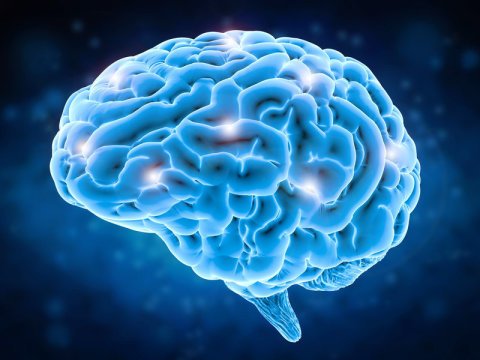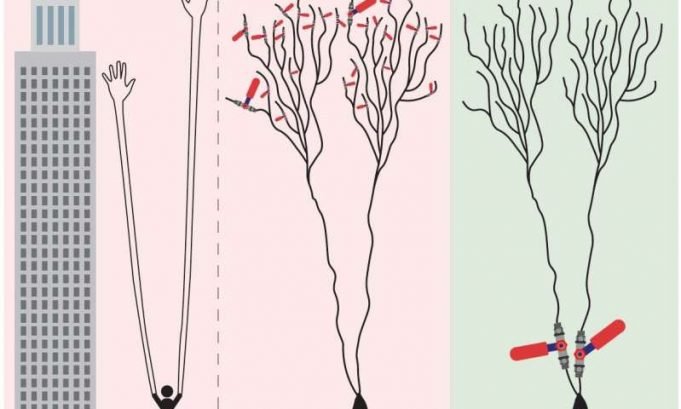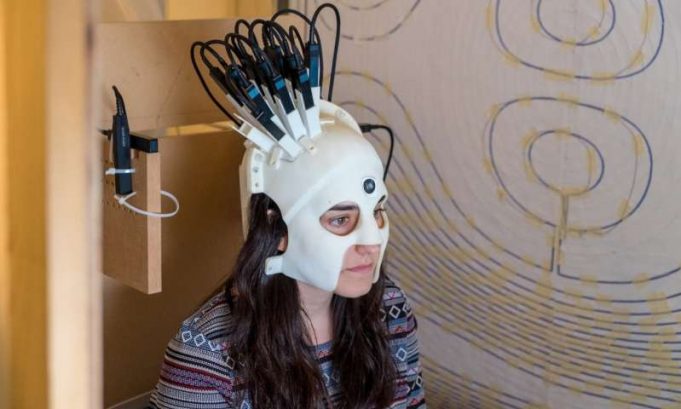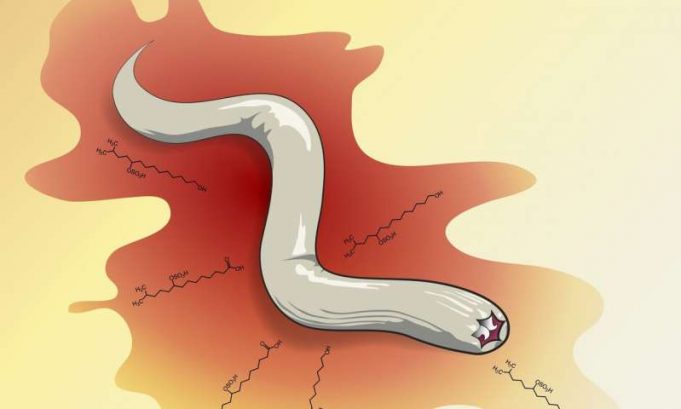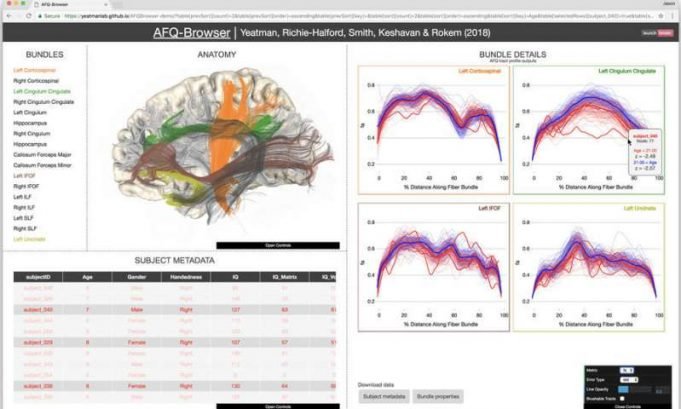The recently-discovered species Homo naledi may have had a pint-sized brain, but that brain packed a big punch. New research by Ralph Holloway and colleagues -- that include researchers from the University of the Witwatersrand, Johannesburg, South Africa --...
In a study of mice, National Institutes of Health-funded researchers describe a new circuit involved in fine-tuning the brain's decision either to hide or confront threats. The study, published in Nature, was partially funded by the NIH's Brain Research...
If you keep a close eye on an MRI scan of the brain, you'll see a wave pass through the entire brain like a heartbeat once every few seconds. This ultra-slow rhythm was recognized decades ago, but no one...
The brain is a complex network containing billions of neurons, where each of these neurons communicates simultaneously with thousands of other via their synapses (links). However, the neuron actually collects its many synaptic incoming signals through several extremely long...
A new generation of brain scanner, that can be worn like a helmet allowing patients to move naturally whilst being scanned, has been developed by researchers at the Sir Peter Mansfield Imaging Centre, University of Nottingham and the Wellcome...
In a striking new finding, researchers at the UC Davis MIND Institute found that typically-developing children gain more neurons in a region of the brain that governs social and emotional behavior, the amygdala, as they become adults. This phenomenon...
Ask a dozen people about their greatest fears, and you'll likely get a dozen different responses. That, along with the complexity of the human brain, makes fear—and its close cousin, anxiety—difficult to study. For this reason, clinical anti-anxiety medicines...
Over the past few years, scientists have faced a problem: They often cannot reproduce the results of experiments done by themselves or their peers.
This "replication crisis" plagues fields from medicine to physics, and likely has many causes. But one...
Samir Haj-Dahmane, Ph.D., senior research scientist at the University at Buffalo Research Institute on Addictions, has discovered how certain neurotransmitters are transported and reach their targets in the brain, which could lead to new drug therapies to help anxiety...
A new study shows that healthy people who take attention deficit hyperactivity disorder (ADHD) drugs experience a surge in the neurotransmitter glutamate in key parts of the brain. And that increase in glutamate is associated with subsequent changes in...
What might alien music sound like? Would it be structured hierarchically as our music is with verses and a chorus? Would we even be able to appreciate it? Vincent Cheung, a doctoral student at the Max Planck Institute for...







